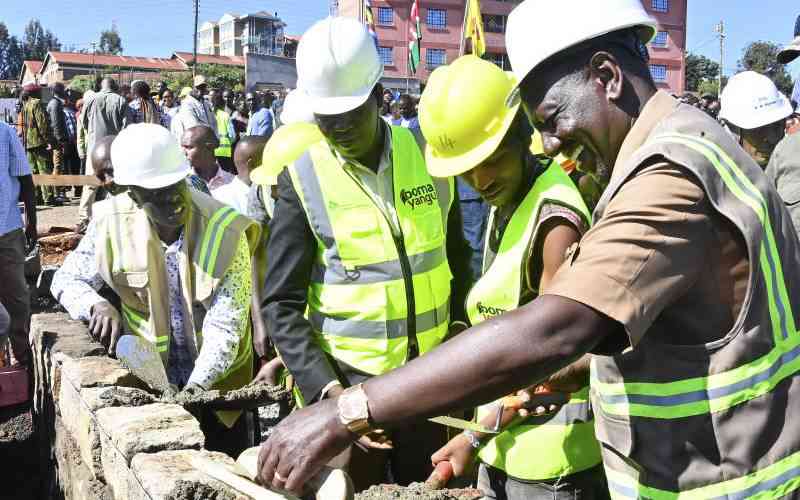×
The Standard e-Paper
Smart Minds Choose Us

President William Ruto scored a crucial win yesterday after Members of Parliament passed the Affordable Housing Bill, 2023, which introduces taxes on Kenyans that will fund his pet project.
The Bill, which seeks to anchor the 1.5 per cent housing levy on both salaried and income-earning Kenyans in law, was given the nod by the National Assembly yesterday and is now headed to the Senate where, if adopted, it will be forwarded to President Ruto for assent.